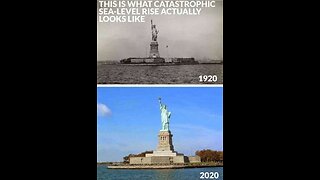USA NOW! Tragic Aftermath of Hurricane Beryl: Lives Lost, Widespread Devastation, Severe Flooding
Historic Hurricane Beryl devastated Caribbean countries, claiming 16 lives and continued its destructive path toward North America.
On July 3rd, Hurricane Beryl slammed Jamaica with wind gusts of up to 140 miles per hour, triggering life-threatening storm surges along the island's coast. Ahead of Beryl's arrival, Jamaican Prime Minister Andrew Holness declared the island a disaster zone. Hundreds evacuated their homes to shelters opened in anticipation of the hurricane.
The hurricane downed numerous trees and power lines, blocked roads, and caused island-wide power outages. The western side of the island bore the brunt of the storm, with Kingston experiencing wind gusts reaching 70 miles per hour. Massive waves along the coast and storm surges inundated Kingston's streets, resulting in extensive power outages.
On June 5th, Beryl struck Mexico's Yucatan Peninsula northeast of Tulum as a strong Category 2 hurricane with maximum sustained winds of 110 miles per hour. It brought dangerous winds, storm surges, and destructive waves to tourist areas like Cancun and Tulum. Strong winds toppled trees and caused power outages, though no serious damage was reported.
By June 7th, Hurricane Beryl made landfall in southern Texas, leaving over 2.5 million homes without electricity. At least 12 people died in Texas and Louisiana due to the hurricane.
Beryl hit the Texas coast near Matagorda early Monday morning as a Category 1 hurricane. It brought torrential rains and winds that turned roads into raging rivers, knocked down power lines, and toppled trees onto homes, roads, and vehicles. Many coastal hotels and buildings suffered roof damage, with Brazoria recording wind gusts up to 97 miles per hour, and Freeport seeing gusts up to 94 miles per hour on Monday. Multiple gusts exceeding 80 miles per hour were reported in the Houston area as well. The coastal town of Sargent suffered significantly from strong winds and flooding.
Beryl caused incredible rainfall in parts of southeast Texas, including the Houston metropolitan area, where some suburbs received 213 millimeters of rain during the period, approximately 32 millimeters less than the average summer rainfall (June, July, and August) of 245 millimeters.
The wind damaged the retractable roof of NRG Stadium, the home arena of the Texans football team.
During the storm's peak, more than 2.5 million customers were left without electricity across East Texas, from Galveston and the Gulf Coast to the Houston metropolitan area and beyond.
CenterPoint Energy, the Texas municipal utility, bore the brunt of the outages, and although the company had prepared for Beryl's aftermath, it reported more serious damage than expected. As of Tuesday evening, CenterPoint still had more than 1.3 million customers without service. The storm veered off its originally anticipated course and was stronger than anticipated.
Restoring electricity could take several days or even weeks, posing a dangerous situation for residents without air conditioning in the oppressive heat that has settled over the state. The heat index, a measure of how the body feels in heat and humidity, exceeded 100 degrees Fahrenheit in Houston on Tuesday. George Bush Intercontinental Airport and William P. Hobby Airport reported a heat index of 103 degrees by early Tuesday afternoon. Air temperatures in the region rose to 90 degrees, and such extreme conditions are expected to persist at least until the beginning of next week.
Heat is the deadliest form of extreme weather in the United States, killing more than twice as many people each year as hurricanes and tornadoes combined.
Americans are already constantly exposed to destructive weather events. It is difficult not to notice the increasing frequency and intensity of catastrophes across the country. To learn more about the development of events in the coming years and understand how to protect yourself and your loved ones, see the "Global Crisis. The Responsibility" forum.
-
 33:43
33:43
Thrivetime Show: The ReAwakening versus The Great Reset
1 day agoBird Flu | Why Is An International Avian Influenza & One Health Emerging Issues Summit Being Hosted Sept 30th - Oct 3rd 2024? What Is More Shameless? Another Plandemic Or Funeral Crashing? Is Bird Flu Disease X?
9.64K5 -
 3:10:37
3:10:37
Common [CENSORED]: An America First Podcast
1 day agoEp.192 FBI Staging Neo-Nazi Rallies In US? Trump Preparing 2 Run Against Kamala! CNN Firing Hundreds
3.22K2 -
 2:11:21
2:11:21
Flyover Conservatives
1 day agoProphecies | JEZEBEL’S ALLIANCES ARE CRUMBLING - The Prophetic Report with Stacy Whited
25.9K20 -
 1:15:33
1:15:33
WEin5DTarot
1 day agoBREAKING: Emergency Bird Flu Summit in D.C.—The Next Pandemic Before the 2024 Election! + Much More.. | Redacted News (Begins at 6:00)
2.25K5 -
 0:09
0:09
DAMOMARK
1 day agoAward-winning American physicist, William Happer: "The climate alarm is nonsense. It's a hoax."
1471 -
 50:36
50:36
Thrivetime Show: The ReAwakening versus The Great Reset
1 day agoReAwaken America Tour | The ReAwaken America Tour Heads to Selma, North Carolina (October 18th & 19th 2024) + Join Eric Trump, General Flynn, Kash Patel, Alina Habba & Team America! Request Tix Via Text: 918-851-0102
6.92K -
 25:40
25:40
The Rubin Report
1 day agoLiberal Influencer Stands by Biden on Piers Morgan & It Gets Brutal Fast
17.4K172 -
 58:54
58:54
The Breanna Morello Show
1 day ago $1.51 earnedBiden Has Lost It | Transgender Inmates Allegedly Sexually Abusing Biological Women in Federal Prison - Wendi Mahoney POLL: Americans Do Not Trust The Media - Mark Mitchell | The Breanna Morello Show
2.41K8 -
 36:35
36:35
Dr. Jane Ruby
1 day agoCO GOV DESTROYS 1 BILLION EGGS OVER FALSE +PCR CHICKEN
9.36K57 -
 47:17
47:17
Liberty and Finance
1 day ago $2.70 earnedPresidential Election Chaos To Continue | Dr. Edwin Vieira
1.6K11